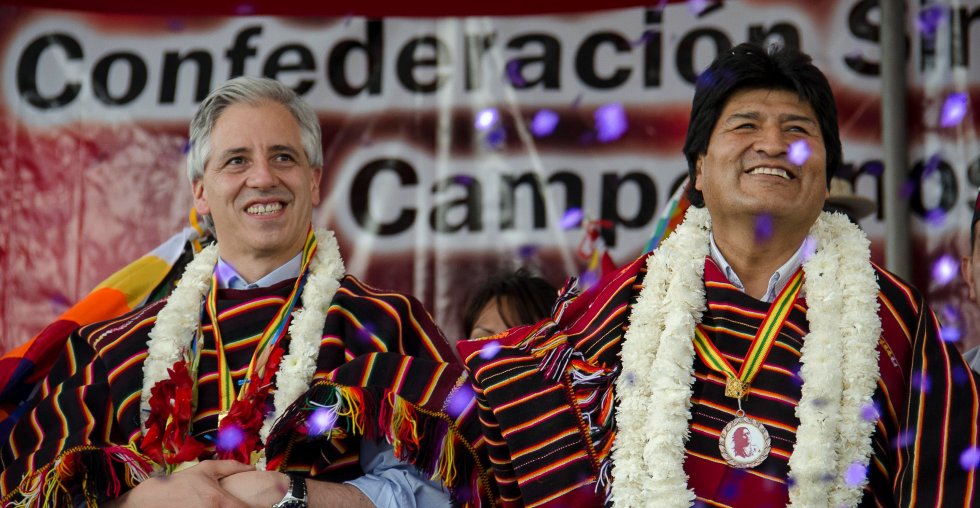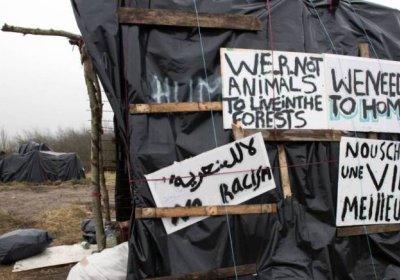About 300 people from the neo-Nazi United Patriots Front (UPF) marched in Bendigo on February 27 to launch their new political party, Fortitude. It was the final leg of the UPF’s tour of the east coast, following gatherings of less than 50 people in Orange and Toowoomba.
It was met by about 100 anti-racist protestors organised by the Bendigo Action Collective, who held a “March Against Fascism and Bigotry”.
Anti-racism
 Murdoch University's Acting Vice Chancellor, Andrew Taggart, joined a student #LetThemStay action on March 3 after controversial actions by university administration the previous week.
Murdoch University's Acting Vice Chancellor, Andrew Taggart, joined a student #LetThemStay action on March 3 after controversial actions by university administration the previous week.
 Kurşunlu mosque in Amed. Damage is from bombardment by the Turkish military.
The following statement was released by Peoples' Democratic Party (HDP) co-chairs Figen Yüksekdağ and Selahattin Demirtaş on March 1.
Kurşunlu mosque in Amed. Damage is from bombardment by the Turkish military.
The following statement was released by Peoples' Democratic Party (HDP) co-chairs Figen Yüksekdağ and Selahattin Demirtaş on March 1.
* * *
Across 58 separate curfews imposed in several neighbourhoods of the 21 districts of 7 Kurdish provinces, 290 citizens have so far lost their lives. Protestors knock down police barricade in Amed, March 2. Photo: Kurdish Question.
Thousands of people marched to the Sur district of Kurdish city of Amed (Diyarbakir in Turkish) in Turkey's south-east Sur district from all corners of the city on March 2 to break the three-month siege and curfew by Turkish state forces.
Protestors knock down police barricade in Amed, March 2. Photo: Kurdish Question.
Thousands of people marched to the Sur district of Kurdish city of Amed (Diyarbakir in Turkish) in Turkey's south-east Sur district from all corners of the city on March 2 to break the three-month siege and curfew by Turkish state forces.
French riot police fired tear gas as they began demolishing the Calais “Jungle” refugee camp on February 29, Morning Star Online said.
Tear gas was reportedly used in response to stone-throwers at the shanty town, which is home to about 4000 people. Lines of police vans gathered on the perimeter of the camp's southern section and people were prevented from entering the site.
 Albert Woodfox was finally released on February 19 — his 69th birthday — from the notorious Angola state prison in Louisiana. He was jailed for 45 years, 43 of which were spent in solitary confinement in a two-by-three metre cell.
Solitary confinement is becoming widely recognised as a form of torture. Woodfox's ordeal was the longest time any prisoner in the US has been held in solitary.
Albert Woodfox was finally released on February 19 — his 69th birthday — from the notorious Angola state prison in Louisiana. He was jailed for 45 years, 43 of which were spent in solitary confinement in a two-by-three metre cell.
Solitary confinement is becoming widely recognised as a form of torture. Woodfox's ordeal was the longest time any prisoner in the US has been held in solitary.
 Photo: Kavita Krishnan.
The article below is abridged from an editorial in ML Update, published by the Communist Party of India (Marxist-Leninist) Liberation.
***
Photo: Kavita Krishnan.
The article below is abridged from an editorial in ML Update, published by the Communist Party of India (Marxist-Leninist) Liberation.
***
 Bolivian Vice-President Alvaro Garcia Linera and President Evo Morales.
The “no” vote narrowly won with 51.3% of the vote in a February 21 referendum in Bolivia held to resolve whether left-wing President Evo Morales could run again in 2019.
The vote, involving an unprecedented participation rate of 90% of registered voters, was over whether to change the constitution to allow a president and vice-president to stand for re-election twice.
Bolivian Vice-President Alvaro Garcia Linera and President Evo Morales.
The “no” vote narrowly won with 51.3% of the vote in a February 21 referendum in Bolivia held to resolve whether left-wing President Evo Morales could run again in 2019.
The vote, involving an unprecedented participation rate of 90% of registered voters, was over whether to change the constitution to allow a president and vice-president to stand for re-election twice.
I feel privileged to have been able to spend several hours on the community picket outside Lady Cilento Children's Hospital in Brisbane where people were rallying in solidarity with Asha.
Asha is the refugee baby who was being treated for burns after an accident in Australia's notorious offshore refugee detention camp, in the increasingly dictatorial Pacific island state of Nauru.
Democrat presidential hopeful Hillary Clinton secured a narrow win over Vermont Senator Bernie Sanders in the Nevada caucus on February 20. The former secretary of state gathered 53% of the vote, while the self-described democratic socialist Sanders secured more than 47%.
Despite his loss, Sanders proved his campaign could mobilise quickly and battle the odds. In a speech following the results, Sanders recalled that just a few weeks ago, he was 25 points behind Clinton in the polls in Nevada. "We have the wind on our backs, we have the momentum," he said.
 February 4 protest in Vavuniyaa.
Tamils in the north and east of Sri Lanka held protests on February 4, the former British colony's independence day.
February 4 protest in Vavuniyaa.
Tamils in the north and east of Sri Lanka held protests on February 4, the former British colony's independence day.
The Trans-Pacific Partnership (TPP) agreement, which involves 12 Pacific rim nations, seriously threatens indigenous land rights, as well as the natural resources they preserve, said United Nations Special Rapporteur on the Rights of Indigenous Peoples Victoria Tauli-Corpuz.
In an interview with the International Work Group for Indigenous Affairs, Tauli-Corpuz said a major issue with the trade deal is “the clause of non-discrimination between a local and an international investor ... [it] grants more rights to transnational firms, often at the expense of indigenous rights”.
- Previous page
- Page 109
- Next page




